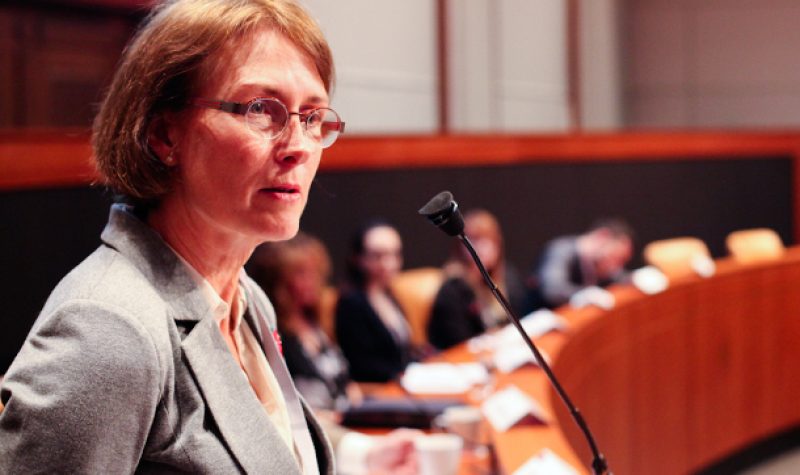VANCOUVER — Former provincial judge Mary Ellen Turpel-Lafond's investigation into racism allegations against British Columbia's healthcare system is asking more Indigenous people to consider telling their stories.
And in an exclusive interview with The Pulse on CFRO, the ex-children's watchdog for the government says she already has more than 400 reports filed to her office.
She was tasked last month with looking into reports that emergency room staff were playing betting games on the blood alcohol content of Indigenous patients. That allegation sparked the province's health minister, Adrian Dix, to appoint Turpel-Lafond to look into anti-Indigenous racism more broadly.
"My prime focus has been on making sure I hear from Indigenous peoples, and Indigenous people who may be really intimidated to share their story — because maybe they don't feel comfortable," she told The Pulse on CFRO on July 21. "So myself as an Indigenous person who has a lot of experience doing these investigations, I can give safety; I'm at an arm's length from government."
Turpel-Lafond is of Cree ancestry and was a provincial court judge in Saskatchewan before taking on the role of BC's independent children's watchdog in 2006, where she served — frequently with scathing criticisms of government — for 10 years.
Her official mandate she has set for the current investigation — titled "An independent investigation into systemic Indigenous-specific racism in health care in British Columbia" — includes examining whether government's, health authorities' or hospitals' "acts or omissions have contributed to systemic racism in BC." And several different aspects of what she ends up recommending will likely deal with a repeated goal raised in her scope of investigation: to ensure health care providers and governments "create space for the exercise of Indigenous peoples’ human rights," according to her website.
Health Minister Adrian Dix called the unconfirmed allegations of the alcohol-level betting game "completely unacceptable" and vowed to make changes required to the system.
"If true, it is intolerable, unacceptable and racist," Dix said on June 22, when he appointed Turpel-Lafond. He said she has the power to access health agencies and to "make recommendations about immediate and long-term next steps."
But Turpel-Lafond said in an exclusive interview with The Pulse on CFRO on Tuesday whether or not the specific report of an emergency room practice are upheld, she has no doubt that health care racism exists.
"It's not if, but what," she said.
The lawyer said she promises solicitor-client protections to anyone who comes forward with allegations, whether they are patients or health care workers themselves.
For Sto:lo Tribal Council Grand Chief Doug Kelly, who sits on the First Nations Health Council, resolving racism in health care will take a society-wide "tough dialogue," and also overturning the way physicians and nurses are allowed to oversee their own misconduct investigations through their professional regulators.
"We cannot create escape hatches to protect the feelings of a racist," he told The Pulse on CFRO. "We have to be blunt, direct and be very clear about what the standards of care that ought to be provided, if we're serious about making sure all people — from all places and all races — are provided the highest quality of care. This system will not fix itself."
Asked about areas of possible recommendations for change, she said it is too soon to say and she is just collecting stories — and will likely reach out with accessible ways for more vulnerable populations such as Vancouver's downtown east side and homeless people across the province — and won't have a final report until it's due at the end of the year.
"All things are on the table," she said. "How is it that the system could sit on these race-related incidents for so long and not address them?"
Listen to Turpel-Lafond's full interview at Vancouver Co-op Radio's website, or The Pulse news clip below. More information on how to file a report with her investigation can be found online, and the toll-free line is open to anyone in B.C. at 1-888-600-3078.


